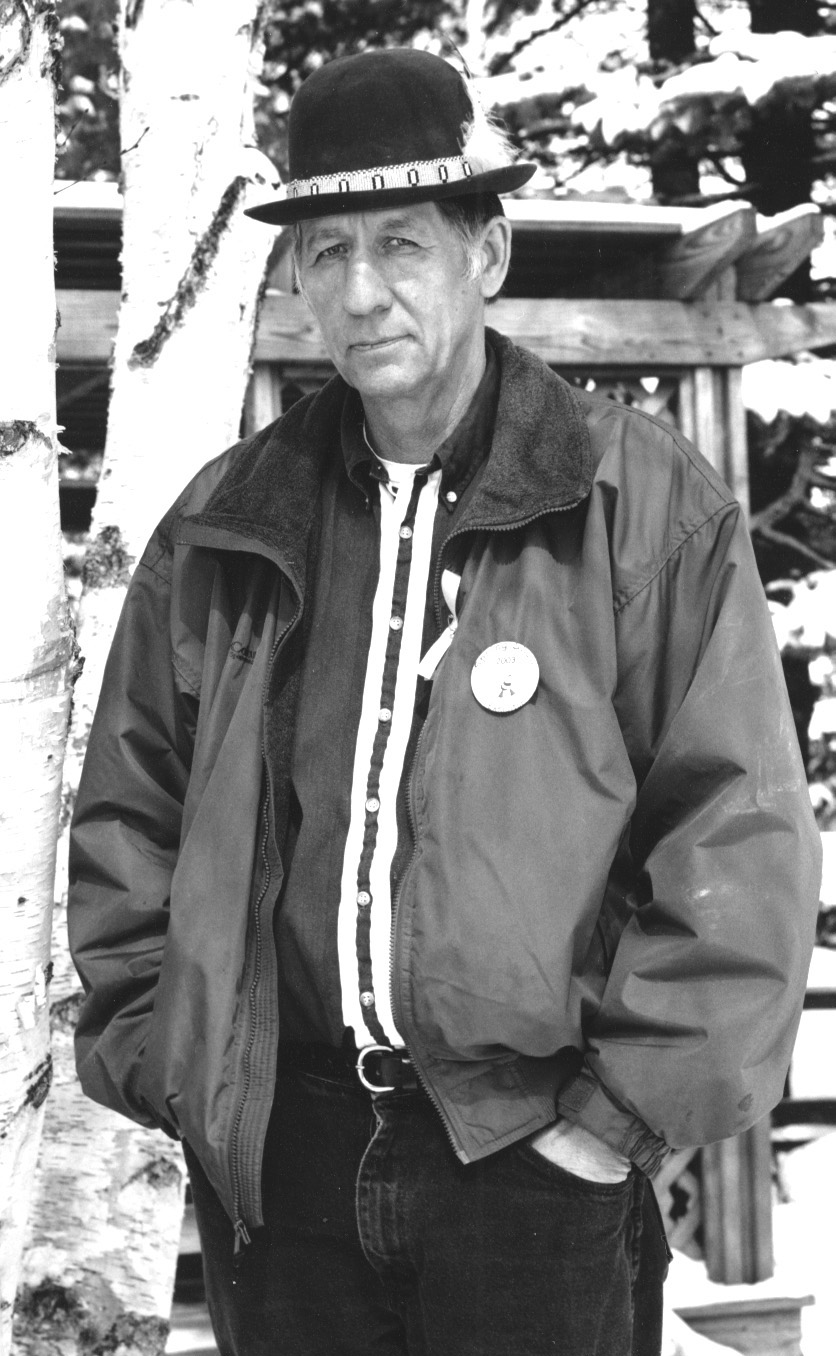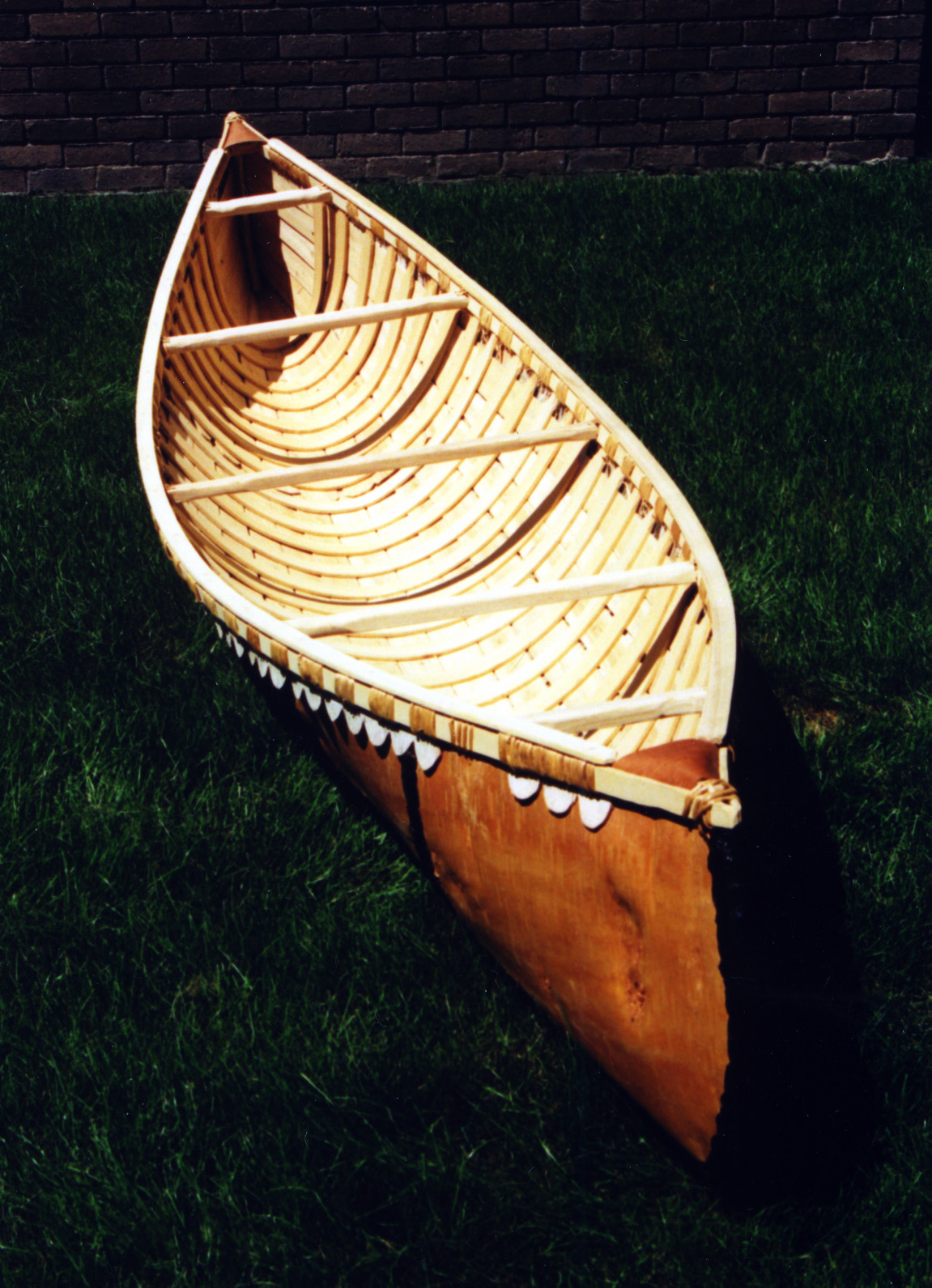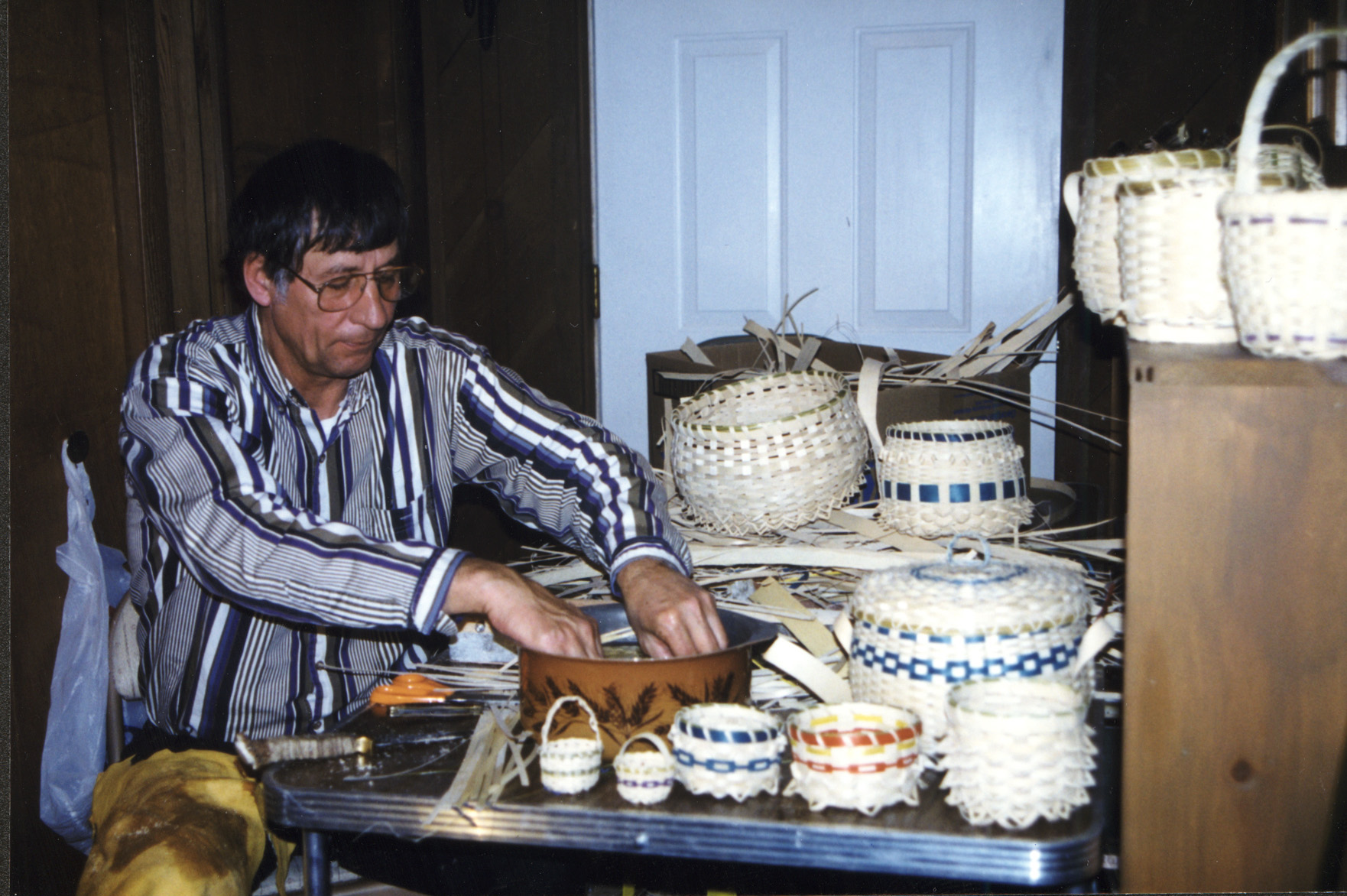Art Form: Birch bark canoe making
Location(s): St. Ignace (Mackinac County)
Ronald J. Paquin

Portrait of Ron Paquin

Birch bark canoe made by Ron Paquin

Ron Paquin with his black ash baskets
Ronald J. Paquin (b. 1942) is a proud member of the Sault Ste. Marie tribe of Chippewa Indians. He is known as a traditionalist and preserver of traditional skills. He believes he has a responsibility to teach others of his tribe about their heritage and he has devoted himself to teaching family and community members a variety of Ojibwa traditions. Ron makes birch bark containers, antler and bone carvings, knives, cedar and deer hide drums, porcupine quill boxes, beadwork, black ash baskets, fishing nets, and birch bark canoes. He is a storyteller and a fisherman. Although a master of these Ojibwa traditions, Ron is being recognized for maintaining and reinforcing the tradition of birch bark canoe making.
Canoes are important to Ojibwa culture and history and Ron is committed to their perpetuation. Years ago, when Ron first realized he wanted to make canoes, his uncle deemed it impractical for him to make them because "tourists weren't interested in buying them." However, as he watched the masters of this craft die, Ron knew if he didn't learn, there wouldn't be anyone left to teach subsequent generations. He worked with family and tribal members to learn carpentry skills and the gathering and processing of materials, and he talked with elders to "learn bits and pieces." He also studied older canoes and occasionally he turned to books. By 2003 he had made some 12 canoes, about one a year. As of 2024, he has created over 80 canoes. Ron often involves community youth and adults in his canoe-making projects; males do the actual building and women do the sewing. He has also made canoes in schools with students. Many of his canoes go to tribal collections in museums in Michigan.
Ron has helped many people in his area gain an appreciation of Native culture, through projects at the Museum of Ojibwa Culture in St. Ignace, Michigan, through the tribe, with his activities with students, and by encouraging other elders to share their skills with young people. His mastery of canoe making is symbolic of his commitment to his heritage. He has received several fellowships from the First Peoples Fund, including a 2007 Community Spirit Award, a 2016 Artist in Business Leadership Fellowship, and a 2022 Cultural Capital Fellowship





